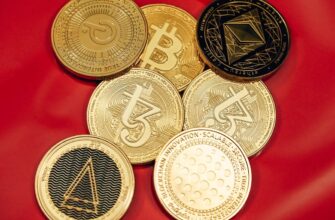What Are P2P Trades?
Peer-to-peer (P2P) trades represent a decentralized exchange model where individuals transact directly without intermediaries. Unlike traditional brokerages or centralized exchanges, P2P platforms connect buyers and sellers to negotiate terms, prices, and payment methods autonomously. This approach gained prominence with cryptocurrencies like Bitcoin but now extends to assets like gift cards, digital services, and even physical goods. By eliminating middlemen, P2P trading empowers users with greater control over transactions while fostering a community-driven marketplace.
How P2P Trading Works: Step-by-Step
- Platform Selection: Users join a P2P marketplace (e.g., Binance P2P, LocalBitcoins, or Paxful).
- Listing Creation: Sellers post trade offers specifying asset, quantity, price, and accepted payment methods (bank transfer, PayPal, cash).
- Matching & Agreement: Buyers browse listings, select an offer, and initiate a trade. Terms are finalized via in-platform chat.
- Escrow Protection: The platform holds the seller’s assets in escrow until payment confirmation.
- Payment & Release: Buyer sends payment; seller verifies receipt and releases assets from escrow.
- Feedback: Both parties rate each other to build reputation scores.
Top 5 Benefits of P2P Trading
- Lower Fees: Avoid hefty brokerage commissions—most P2P platforms charge minimal or zero fees.
- Payment Flexibility: Choose from diverse options like bank transfers, e-wallets, or cash payments.
- Global Access: Trade across borders, especially valuable in regions with limited banking infrastructure.
- Enhanced Privacy: Reduced KYC requirements compared to centralized exchanges.
- Price Control: Set custom rates or negotiate deals directly with counterparties.
Managing Risks in P2P Trades
While P2P trading offers freedom, it carries unique risks:
- Fraud: Scammers may fake payments or refuse asset release.
- Payment Reversals: Chargebacks via reversible methods (e.g., PayPal) can lead to losses.
- Regulatory Uncertainty: Laws vary by jurisdiction; some methods may violate platform policies.
Risk Mitigation Strategies:
- Use escrow services exclusively—never trade outside the platform.
- Verify counterparty reputation scores and trade history.
- Opt for irreversible payments like bank transfers or crypto transactions.
- Document all communications and payment proofs.
Best P2P Trading Platforms for 2023
- Binance P2P: High liquidity, 300+ payment methods, and zero fees for crypto trades.
- Paxful: Supports unconventional payments (gift cards, vouchers) with robust dispute resolution.
- LocalCryptos: Non-custodial Ethereum/Bitcoin marketplace emphasizing privacy.
- Hodl Hodl: Bitcoin-focused with multisig escrow and no KYC for small trades.
Pro Tips for Successful P2P Trading
- Start with small trades to test platform reliability.
- Cross-check market rates to avoid overpaying or underselling.
- Enable two-factor authentication (2FA) on all accounts.
- Use platform-specific chat for communication—never share personal contacts prematurely.
- Diversify payment methods to attract more buyers/sellers.
P2P Trades FAQ
Q: Is P2P trading legal?
A: Yes, but compliance varies. Always follow local regulations and platform rules.
Q: Can I trade non-crypto assets via P2P?
A: Absolutely. Platforms like eBay (goods) or AirSwap (tokenized assets) support diverse P2P trades.
Q: How long do P2P transactions take?
A: Trades complete in minutes to hours, depending on payment verification speed.
Q: What if a counterparty scams me?
A: Reputable platforms offer dispute resolution. Escrow protects funds until both parties fulfill obligations.
Q: Are P2P trades taxable?
A: In most countries, yes. Consult a tax professional to report capital gains or income accurately.








